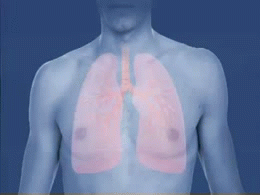It is common knowledge by now that smoking is detrimental to a person’s health in almost every way. Throw in asthma to the mix, and the threat increases exponentially. There are many side effects of smoking for people with asthma - so the advice is, if you haven’t started, don’t, if you have, stop as soon as you can!
Introduction
Smoking is one of the leading causes of death and illness in the UK, with more than 78,000 people dying from smoking and many more suffering from more than 50 significant chronic smoking-related illnesses.
Some may be fatal, while others may cause long-term permanent health problems. Therefore, understanding the health effects of smoking and taking action on quitting smoking is crucial.
The aim of this article is to help understand this, but from the perspective of those also dealing with asthma. With both smoking and asthma affecting the lungs, any complications may be significantly worsened.
The health effects of smoking

Lung cancer is the leading health complication of smoking, and smoking is responsible for around 7 out of 10 cases. Smoking has also been associated with other cancers, including the mouth, throat, voice box (larynx), oesophagus (the tube that connects your mouth and stomach), bladder, gut, cervix, kidney, liver, stomach, and pancreas.
Smoking may also damage the heart and blood circulation, which can lead to increased risk of developing disorders such as coronary heart disease, heart attack, stroke, peripheral vascular disease, and cerebrovascular disease.
In some circumstances, smoking causes impotence in people assigned male at birth (AMAB) due to a lack of blood supply in the penis, and it can also have an impact on the fertility of both people AMAB and people assigned female at birth (AFAB).
Keep an eye out for second-hand smoke as well. The probability of developing lung cancer increases by roughly 25% for people who never smoked, but have a smoker as a spouse. There are also a number of health risks associated with second-hand smoke exposure for children and babies, including a higher risk of developing a chronic cough or chest infection, as well as meningitis.
Smoking during pregnancy is harmful to both the unborn child and the mother’s own health. Therefore, it should be avoided. It also increases the chance of miscarriage, stillbirth, and premature birth.
Post-birth complications include weakened lungs, low birth weight (which may have long-term consequences for children's growth and development) and attention deficit hyperactivity disorder (ADHD) in babies.
The health effects of smoking on asthma
Smoking, whether cigarettes, cigars, pipes, shisha, or roll-ups, increases your risk of asthma symptoms and attacks. In most developed countries, 25% of adults with asthma are current smokers.1 Although few studies have been published on airway pathology in asthmatic smokers, smoking may alter asthma-related inflammation.


*Image credit by CC BY-SA 3.0, Link
Evidence suggests that smokers with asthma can show some increased or decreased inflammatory responses compared to non-smokers. Active chemicals in cigarettes interact with asthma, resulting in even more severe symptoms, including faster loss of lung function and a reduced short-term therapeutic response to steroid preventer medications.1
This implies that asthma in smokers is more difficult to manage daily, and they are more likely to experience symptoms such as:1
- shortness of breath
- coughing, wheezing
- tight chest

In the long run, if the asthma remains difficult to treat and the smoking continues, there is a higher likelihood of developing other serious lung disorders such as chronic obstructive pulmonary disease (COPD), which incorporates bronchitis and emphysema.
Smoking and your immune system
People who smoke are not only in danger for a variety of smoking-related health issues, they are also compromising their immune system which is the first line of defense against illness and infection in your body.
Here are some of the ways smoking has been shown to harm the immune system:
- Tobacco cigarettes contain a number of chemical substances that can interfere with the body's ability to fight against illness and infection. Hence, worsening the function of the immune system and resulting in more severe conditions.
- Smoking can disrupt the balance of the immune system, making smokers more vulnerable to autoimmune diseases such as rheumatoid arthritis, psoriasis, and inflammatory bowel disease. Recent research suggests that smoking reduces the neuroimmune response of the brain to systemic infection and inflammation.2
- Smoking can lower antioxidant levels in the bloodstream, particularly vitamin C, which is essential for normal functioning of the immune system and plays a key role in lung protection and resistance to infection.
Stopping smoking helps the body's natural defences to recover. There is a healing process when the body's immune system is no longer exposed to toxins found in cigarettes. It should go without saying, but the sooner the journey towards stopping smoking begins, the better it will be.
Ready to quit smoking?

There is a lot of support available to help quit smoking, with therapies such as nicotine patches, stop smoking medications, and e-cigarettes to help with cravings. It is not always easy to give up and it may take a few attempts. Around 75% of individuals who quit smoking relapse at some point, and most smokers attempt to quit three times before succeeding.
However, evidence suggests that a combination of advice and support, as well as the appropriate therapies, is the most effective method to reach the goal of stopping smoking.
GPs, asthma nurses, and pharmacists can also help you get started and connect you with local NHS Stop Smoking Services.
Summary
Quitting smoking can be hard. But it is important to understand that smoking has detrimental effects on the whole body, especially the lungs. It also weakens the ability of the immune system to fight against infection, worsening asthma symptoms and resulting in the development of some long-term health complications such as asthma. However, the journey can start by performing a chronic disease risk assessment on the Klarity App to understand your overall personal health, and receive lifestyle recommendations on asthma symptoms and smoking status. You’ve got nothing to lose and so much to gain!
References
- Thomson NC, Chaudhuri R, Livingston E. Asthma and cigarette smoking. European Respiratory Journal 2004;24:822–33.
- Hillmer A, Matuskey D, Huang Y, Nabulsi N, Ropchan J, Carson R, et al. Imaging dynamic neuroimmune responses to LPS in tobacco smokers: a [11C]PBR28 PET study. Journal of Nuclear Medicine 2019;60:488–488.






